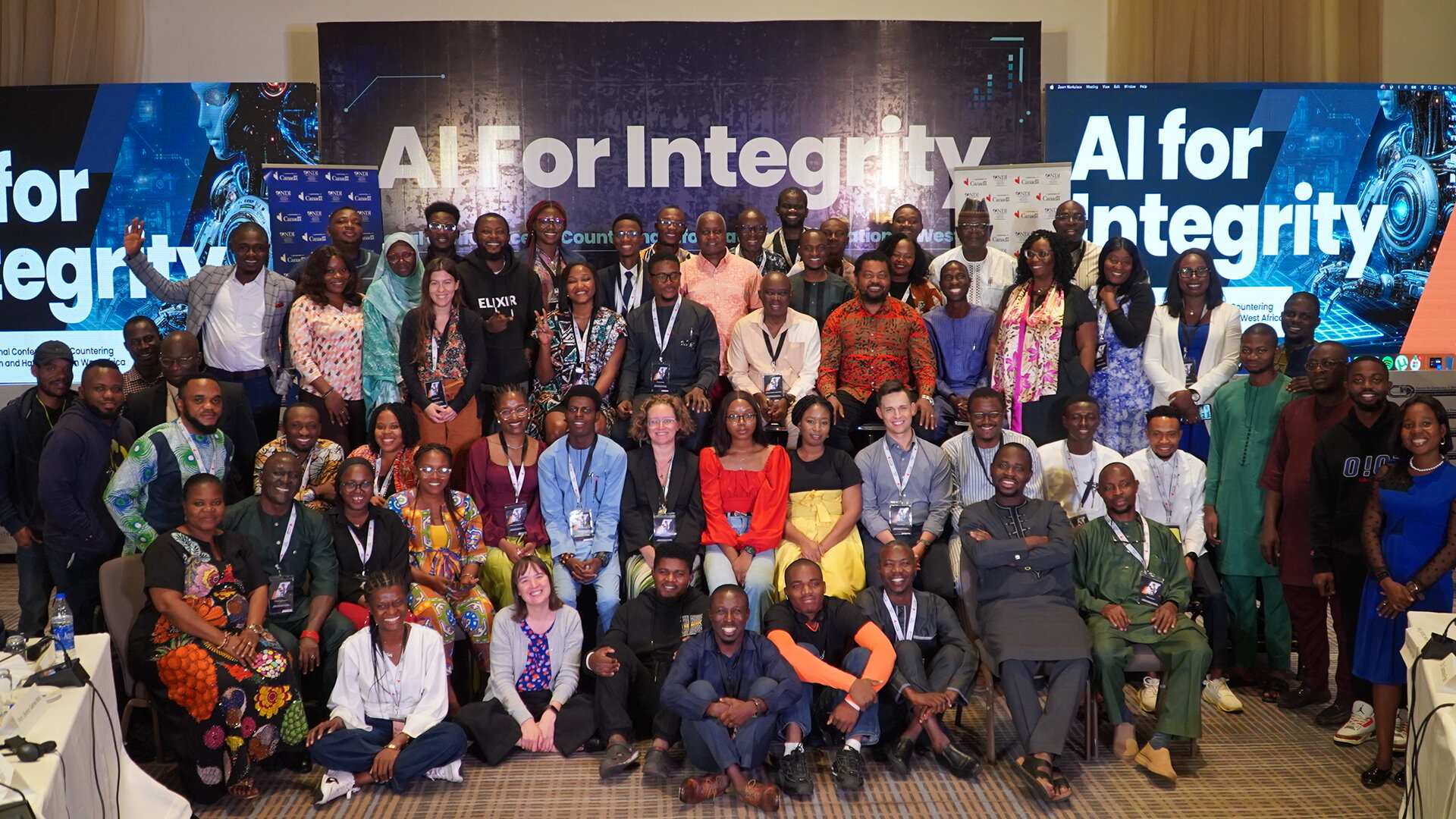
West Africa Countering Information Manipulation Conference, Stakeholders Commit To Collaborative Strategies, Resolve To Deploy Artificial Intelligence For Integrity
PRESS STATEMENT
July 23, 2024
For Immediate Release
At West Africa Countering Information Manipulation Conference, Stakeholders Commit To Collaborative Strategies, Resolve To Deploy Artificial Intelligence For Integrity
Rising from the recent three-day West Africa Countering Information Manipulation Conference organized by the National Democratic Institute (NDI) and the Centre for Democracy and Development (CDD-West Africa), have resolved to build enduring partnerships while collaborating to counter information manipulation in the region. Participants, including representatives of Nigerian government agencies, the media, civic tech platforms, and civil society organizations from across the West Africa subregion, committed to pursuing best practices, to strengthen the resilience of the information space and by extension, the democratic and governance processes in the region. As one participant put it, the conference “has given me a better grasp of how human experience and technology are intertwined so that in our work and communication, we keep this as a guide to how we source, use and disseminate information.”
The conference featured remarks by the High Commissioner of Canada to Nigeria Jamie Christoff, who noted that “Canada, plays a vital role in supporting African nations in understanding and combating information manipulation through funding, technical assistance, and capacity-building initiatives that raise digital literacy, leverage AI, and foster a healthy, safe, and inclusive online ecosystem.”, and a keynote address by Professor Uketor Gabriel Moti from the University of Abuja. During the conference participants engaged with presentations on lessons learned from recent elections in Nigeria, Sierra Leone, Liberia, Senegal, Côte d’Ivoire, and DRC, as well as from experiences in the Sahel where countries are in transition, to ensure accurate information prevails in the political and governance space across the region. Participants committed to improving information-sharing across language boundaries, as they recognized that countries across the region had significant similarities and could share lessons if they worked together. Experts shared deep knowledge and best practices, reaffirming the threat posed to democracy and electoral processes by the spread of disinformation and computational propaganda.
In light of recent democratic challenges in some countries within the region, actors working to promote and protect information integrity resolved to forge new ties and pursue synergies to amplify their impact against the large-scale threat of disinformation, especially in an era where advanced technology and AI can help both good actors and those with bad intentions to work more efficiently. While bad actors use technology for wide-scale information manipulation, fact-checkers, and information integrity promoters must also build skills and resilience to deploy AI and other technological innovations effectively. AI and similar innovations are seen as crucial tools to ensure information integrity and counteract bad actors. However, the conference emphasized the need for a human-centered AI approach based on evolving and improved data sources, considering the inherent biases within AI data sets that may not account for diverse social, cultural, and economic contexts.
In terms of challenges apparent in the deployment of technological tools, participants identified the high cost of developing such tools, and the dearth of locally designed tools as some of the major gaps to address in the information ecosystem. Despite these challenges, the conference showcased locally designed and tested fact-checking tools anchored around AI, including the Nigerian-developed tools www.myaifactchecker.org and the dubawa.org chatbot (talk to it on WhatsApp at +234 901 522 7915). Journalists at the conference committed to promoting greater awareness of these kinds of tools they, their colleagues, and their audiences could use, and to sharing debunkings on their shows and in their columns. The conference provided a platform for AI solution designers and end-users to interact and share insights about how best to collaborate and leverage on the diverse set of tools available in the space to counter the clear and ever present danger of information manipulation.
Participants also discussed the role of the technology giants in preventing the spread of information manipulation, especially the gendered dimensions, which inhibit the participation of historically marginalized groups from robust participation in political and public life. Participants debated whether and how African nations can individually or collectively hold major technology platforms accountable for the content on their sites; one participant noted that “One individual can not solve everything but as a group we can achieve more.”
In the end, the conference, through its plenary and group sessions generated a treasure trove of lessons learned and actionable steps to implement existing best practices, through which the media and civic actors countering information manipulation can effectively accomplish their missions. Central to ensuring an information ecosystem void of manipulated information are the tasks of media and digital literacy, and the importance of working together to create an environment free from information manipulation in West Africa. By fostering collaboration and leveraging innovative technologies, we can safeguard the integrity of information and strengthen democratic processes across the region.
Signed:
Dr. Dauda Garuba
Director, CDD West Africa
